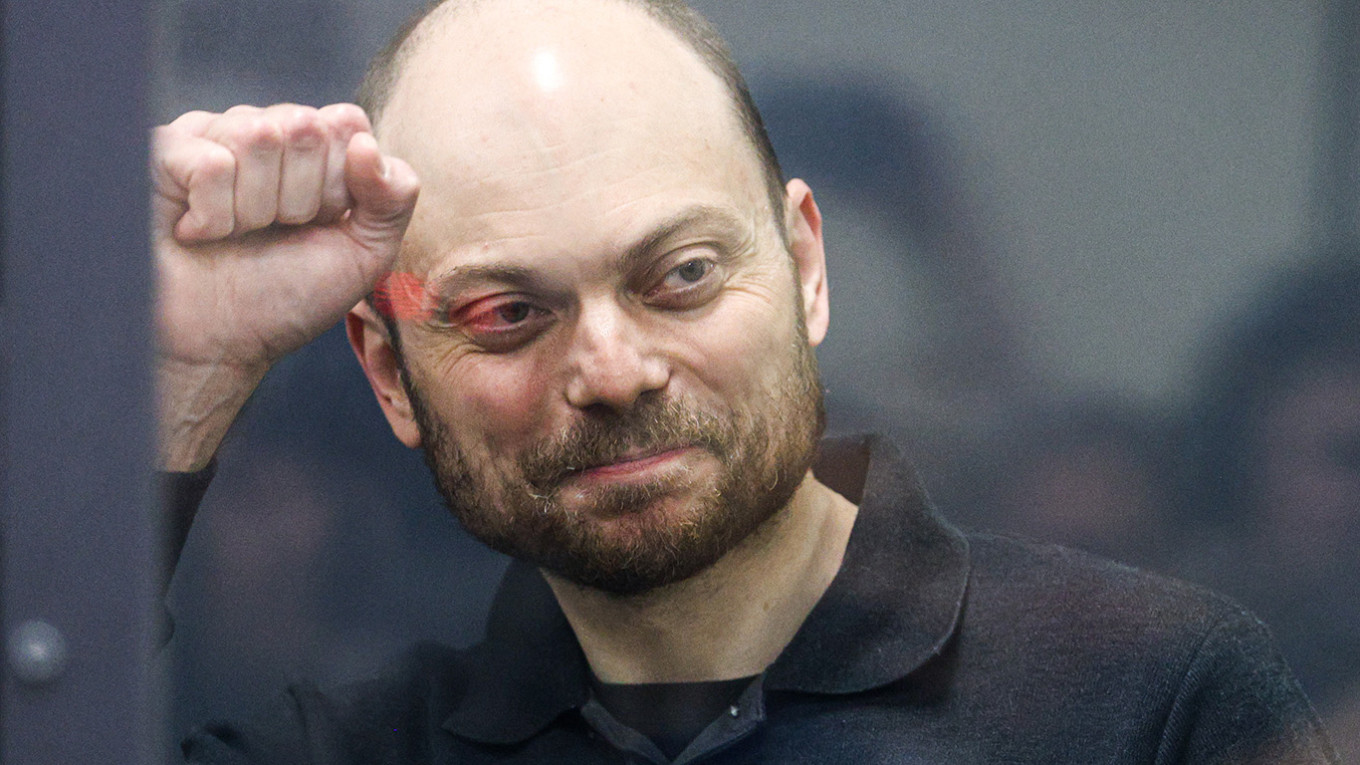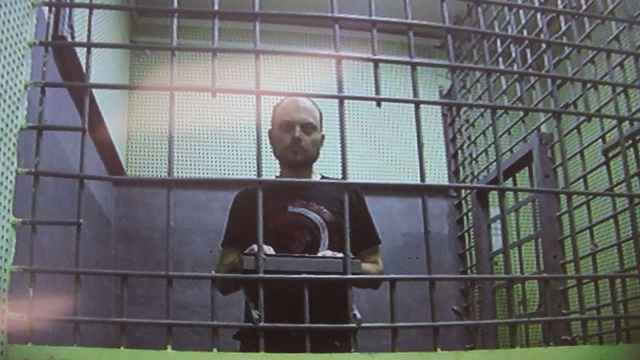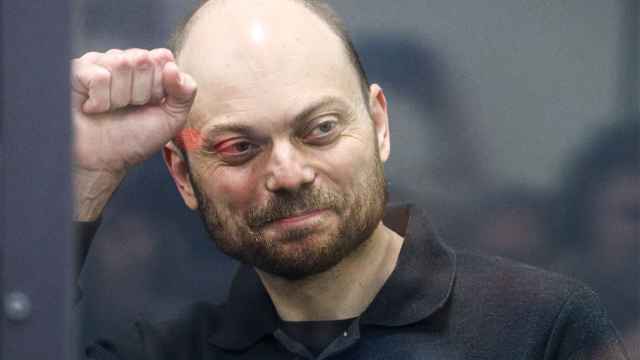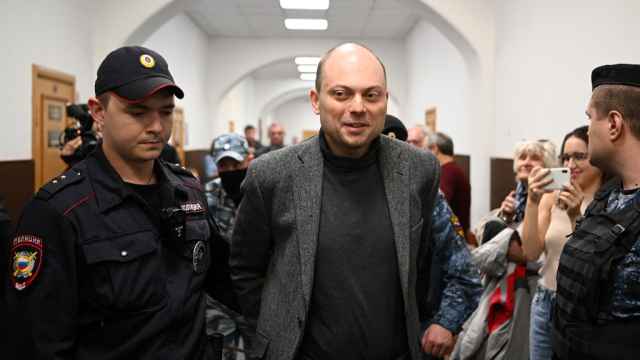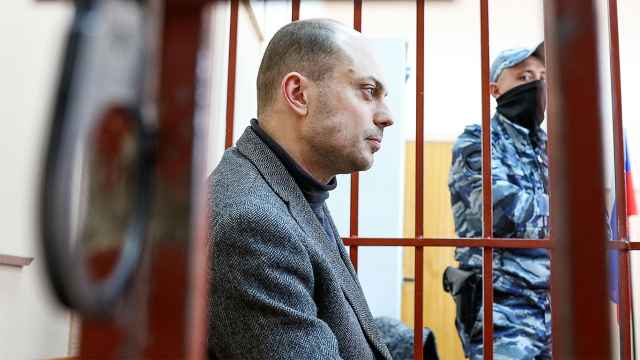Jailed opposition figure Vladimir Kara-Murza’s lawyers are still being denied access to the politician almost a week after he was moved to a prison hospital, his wife Evgenia said Tuesday.
Kara-Murza, 42, was transferred to a prison hospital in the Siberian city of Omsk on July 4. He has suffered from a nerve condition since falling seriously ill in 2015 and 2017 in what he said were poisonings orchestrated by Russia’s FSB security service.
Evgenia Kara-Murza said prison officials and hospital staff have denied his lawyers’ requests to see their client since last Thursday.
“For the sixth day, lawyers are illegally prevented from visiting Vladimir Kara-Murza,” she wrote on Facebook Tuesday. “He’s incommunicado, his health status is unknown.”
Kara-Murza, a dual Russian and British citizen, was arrested in April 2022 after he blasted Russia's invasion of Ukraine and pressed Western countries to impose sanctions against the Kremlin.
He was sentenced in April 2023 to 25 years in a maximum-security prison on charges of treason, spreading “false” information about the Russian army and having links to an “undesirable organization” — one of the longest prison sentences handed down to a Russian opposition figure in recent years.
Kara-Murza had vocally campaigned against President Vladimir Putin for years and stayed inside the country to criticize the 2022 military offensive on Ukraine even as Moscow passed a raft of anti-dissent and military censorship laws.
From behind bars, Kara-Murza has continued to campaign against Putin and urged Moscow to investigate his claims of having been poisoned.
Fears for his health have grown since fellow Kremlin critic Alexei Navalny died in prison under unclear circumstances in February.
A Message from The Moscow Times:
Dear readers,
We are facing unprecedented challenges. Russia's Prosecutor General's Office has designated The Moscow Times as an "undesirable" organization, criminalizing our work and putting our staff at risk of prosecution. This follows our earlier unjust labeling as a "foreign agent."
These actions are direct attempts to silence independent journalism in Russia. The authorities claim our work "discredits the decisions of the Russian leadership." We see things differently: we strive to provide accurate, unbiased reporting on Russia.
We, the journalists of The Moscow Times, refuse to be silenced. But to continue our work, we need your help.
Your support, no matter how small, makes a world of difference. If you can, please support us monthly starting from just $2. It's quick to set up, and every contribution makes a significant impact.
By supporting The Moscow Times, you're defending open, independent journalism in the face of repression. Thank you for standing with us.
Remind me later.


